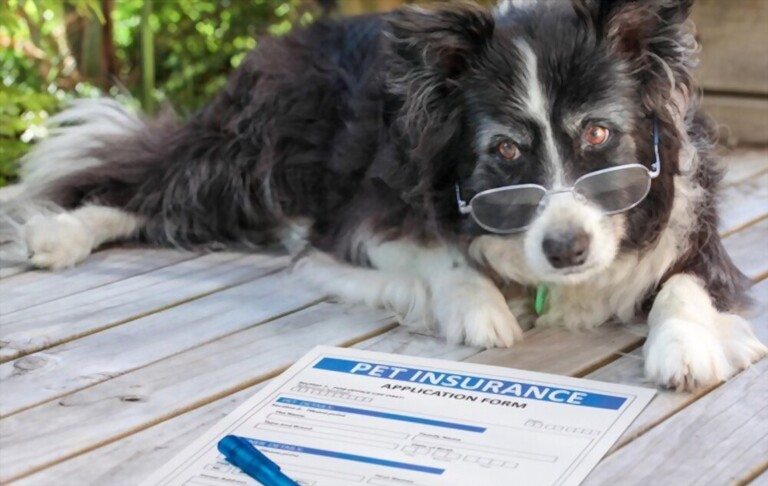You can't foretell what will happen in the future, such as when or how you’re pet may become ill, or how much it will cost. As a result, you should not overlook the importance of planning for the future. Pet insurance will cover any unexpected veterinarian costs. Many pet owners cover their pets' medical expenses on their own dime. Benefits of pet insurance is a good place to start learning about pet insurance below.
1. Benefits of Pet Insurance
Make sure to take care of your pet's health

When you decide to get a pet, pet insurance is a wonderful idea. Depending on the coverage you choose, your insurance has more alternatives for treating dental problems, parasite infections, cataracts, fractures, pregnancy complications, and more. As your pets become older, pet insurance becomes a need.
Assisting you in reducing the cost of pet care

Assisting you in reducing the cost of a pet cat is one of the benefits of pet insurance. It is difficult to guarantee your pet's health's perfect safety, no matter how diligently you care for it. Pet insurance will cover nearly the entire cost of your pet's medical treatment in the event of an accident, injury, or sudden sickness. So you don't have to be concerned about having to spend a lot of money one day.
Support the treatment of diseases that are expensive to treat

One of the significant benefits of pet insurance is supporting the treatment of diseases. Pets, like humans, can develop serious illnesses, and treatment for these illnesses can be rather costly. As a result, if you are willing to spend money on pet insurance, you will not have to worry about large sums of money if your pet contracts a serious illness and requires expensive treatment.
Provide additional protection

Aside from accidents and illnesses, some pet insurance policies also cover pet theft or loss, international travel, and third-party liability in the event your pet injures others or damages their property.
Depending on your budget and the demands of your pet, you can choose from a variety of policies. Some pet insurance packages allow you the option of paying your premiums monthly, quarterly, semi-annually, or annually.
2. Some Ways to Take Care Your Pets
Having a pet is bound to provide a lot of joy and excitement. Adopting and caring for them, though, is a huge commitment. Here are some pointers to assist you care for your dog’s so that they are happy, active, and healthy:
Veterinary Consultations

Regular vet visits are the foundation of responsible pet ownership. Your dog or cat should undergo a checkup at least once or twice a year due to their shorter lifespans than humans. When your pet is young, veterinary appointments may be more frequent depending on the type and immunization schedule, but establishing and maintaining good pet health necessitates monitoring medical visits as they age.
It's fair to say that visits to the veterinarian can be difficult. Cats, in particular, dislike leaving their familiar surroundings, but there are ways to relieve tension for both of you. It is a good idea to introduce your cat to a carrier at a young age (and avoid running away and hiding under the bed) (and avoid running away and hiding under the bed). Car rides are a favorite pastime for dogs. Take your dog on an expedition so he doesn't associate getting in the car with going to the vet. Many pets don't like coming to the vet, especially if you select the correct veterinarian for your pet.
Vaccinations

Vaccinating your pets is an essential element of good pet care. Once you have your own pet, you should make an appointment for vaccines as soon as possible. Your veterinarian will design a vaccination program for your puppy or kitten during your initial appointment to protect them from illness and disease.
Vaccinating your pet in the first few weeks after you bring it home is a smart idea. On the initial appointment, talk to your veterinarian about the best time to plan that visit. If you're adopting an adult or older pet, ensure they're also up to date on their vaccinations. Vaccinations must be novel, and not simply for puppies and kittens.
Identifying yourself correctly

Consider what would happen if your pet went missing. Having adequate identification, especially for young pets that tend to run out the door, is the key to a happy conclusion.
A safety collar and tag with all of your contact information can be added to your pet's collar. In addition to the ID tag, microchipping your pet is recommended because the collar may fall off at any time. The microchip, which is about the size of a grain of rice and is implanted under your pet's skin, can be read by a scanner that pulls in your personal information.
Only if you keep your contact information up to date will the combination of these forms of identification be able to reconnect you and your beloved pet for a long time. If your personal information changes, you should update the chip file as well.
Healthy food

You must also offer the animal with fresh, cool water as well as nutritious food. Your best friend's life will be enriched by the correct pet food, which will provide them with the energy and nutrients they require. It can be overwhelming with so many treats to pick from, but you can become an expert in no time by learning about the important ingredients and how they benefit your pet puppy or cat.
When looking for the best cat food, seek for foods with a decent protein, carbohydrate, and fat balance. These are also crucial components that can help the digestive tract absorb more fiber.
Choose a pet food recipe that is suited for your pet's age, health condition, and activity level, in addition to nutritious ingredients, and consult your veterinarian before transferring your pet. You change your diet to something more specialized.
Training and socializing

Making sure your dog or cat is well-trained, including adequate socializing, is one of the most critical components of responsible pet care. It's preferable to start when you're young since it's more effective, but it's never too late to pick up new skills.
Toilet training, as well as obedience training, are top priorities for any animal you share your home with. If you learn how to socialize your dog or kitten, he or she will bond with you and other pets. Request referrals for competent trainers in your region from your veterinarian or a local animal shelter, as well as home training instructions to read. A happy pet is a well-trained pet, and happy pet parents are happy pet parents.
Spaying/Neutering

Sterilization protects your pet against a variety of health issues, including problematic pregnancies, and helps to reduce the number of homeless animals. Spaying your cat (removal of the uterus and ovaries) lowers the risk of cervical cancer and removes the possibility of ovarian cancer.
Conclusion
If you wish to purchase pet insurance for your dog, you should do so while he is still young. It can, however, be done later in life. You can weigh the benefits of pet insurance against the expense.













